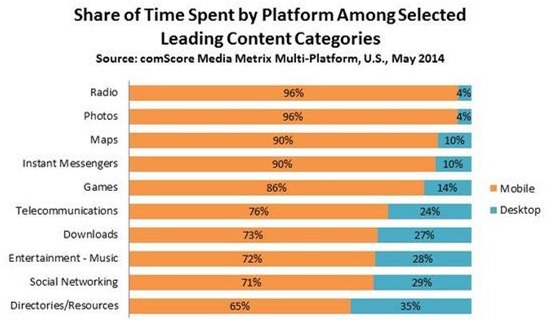 When I grew up in Detroit in the pre-cable TV days, there were just the big three networks, and a local UHF station – a far cry from today’s hundreds of channels. But we also had a bonus – Canadian television, in the form of the CBC. Because of our proximity to Windsor, access to Canadian TV added some variety, and not just because of the hockey coverage.
When I grew up in Detroit in the pre-cable TV days, there were just the big three networks, and a local UHF station – a far cry from today’s hundreds of channels. But we also had a bonus – Canadian television, in the form of the CBC. Because of our proximity to Windsor, access to Canadian TV added some variety, and not just because of the hockey coverage.
This is a proud and traditional operation, and recently, their president and CEO, Hubert Lacroix, layed out a whole new and controversial vision for the network’s future. While it will have many pain points for traditional CBC employees, the digital emphasis is unmistakable.
As Lacroix pointed out, “We used to lead with television and radio. Web came and then mobility came. We are reversing; we are inverting the priorities that we have. We’re going to lead now with mobility; we’re going to lead with whatever widget you use. You’re going to see an investment in mobility that’s going to rise as the investment in perhaps television…is reduced.”
In many ways, the CBC is echoing what Google has been saying for years: think mobile first. And it sounds like a done deal as Lacroix realizes that mobile consumption is moving so quickly that adjustments have to be made, as painful as they may be for long-time employees.
While insisting that “We’re in the business of content,” Lacroix emphasized the reality that distribution matters. Without it, the CBC’s nightly TV newscasts will go the way of that newspaper that used to live on our front porches.
Mark Ramsey was recently quoted from his Hivio conference in one of the industry trade publications: “People don’t fall in love with distribution channels; they fall in love with content.”
Of course, it’s true that as the CBC points out, without its great content, no will turn on their tablets, their phones, and their laptops to access news stories and coverage. But the onus is on the network to be sure its content is readily and principally available on these outlets – and not just on broadcast television. To deny that distribution matters is to not see the gale-force winds that are changing broadcasting’s tower and transmitter legacy.
The move to mobile is unmistakable, and with it, the “connected car,” because that form of four-wheel distribution is undergoing a similar tsunami – and content distribution is being amplified by pairing up smartphones in cars.
New data from comScore reflect the rapid move to mobile. The chart below shows the percentage of usage across many different media. Interestingly, “radio” is on top of the heap. This data suggests that the lion’s share of Internet radio listening (and this includes Pandora and other pure-plays, as well as streaming audio from TuneIn, iHeartRadio, etc.) is being consumed on mobile devices.
What does this have to do with the CBC and television?
It has everything to do with content creation and distribution. Because as we continue to learn from many sources, the move to mobile devices is happening at a faster clip than we ever imagined.
And that means that while your content will always be king, your mobile strategy is now queen. Too many brands don’t have a mobile vision, or simply think that if they can be accessed on one kind of app for another, they can check mobile off the list.
Lacroix is strongly suggesting that it’s a lot more than that, and he’s willing to put his organization and its people through considerable pain over the next few years in order to make the transition. He also realized that It’s not just a matter of devices and gadgets, but an entirely new mindset and culture that’s going to have to be in place at the CBC if his initiative is to succeed.
Not everyone is going to be happy, of course. Disruption is never fun.
But neither is extinction.
That’s what the CBC is thinking – and traditional media brands and broadcasting icons will be following their progress carefully.
We should, too.
- What To Do If Your Radio Station Goes Through A Midlife Crisis - April 25, 2025
- A 2020 Lesson?It Could All Be Gone In A Flash - April 24, 2025
- How AI Can Give Radio Personalities More…PERSONALITY - April 23, 2025





We are living in a world where change — which has always been a constant — is now accelerating at a pace where even the tech nerds can’t wrap their mind around it. Great article Fred.
Thanks, Dick. Much appreciated. The challenges and the opportunities are immense.
As a fellow transplanted Detroiter, I certainly remember CBC well, and beyond Hockey. As your chart reinforces, radio broadcasters don’t have to worry so much about mobile distribution, although a chip deal with Verizon and AT&T are a must with limited data plans becoming the norm. Content in their case is critical. Looking at emerging generations and their affinity to radio, they will not stay only for music as they mature. Content, of genuine value, not sponsored fluff, will make a major difference in their media choice and retention, given how mobile radio has always been. Yes, broadcasters need to treat distribution with importance, but once you get to the ear or eye, it still needs to be worthwhile spending the time there. Make it honest, relevant and helpful and they will stay with you when the music stops.
Dick, nice balance of content and distribution in your comment – and that is the secret to making the transition. The CBC has taken bold and very controversial steps. It will be interesting to watch its American counterparts in the coming years. Thanks for taking the time to chime in.